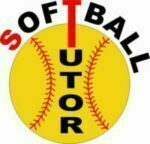
Are you aware of how you talk to yourself during competition and training? Are you aware of how you talk to yourself in your daily life? Self talk is something I bet you actually do every day. I challenge you to be consciously aware of your thoughts for one day. You might be surprised at the things that you say. Softball Self talk is something that is a part of every game and practice. It is something that just happens naturally. There are probably good and also some not so good things that you say to yourself all the time.
Softball Self Talk
During performance, your self talk can have a huge effect on your performance. If you tell yourself how bad you are at a skill, chances are you will prove that to yourself when the opportunity presents itself. Sometimes it can become a habit to tell yourself how poorly you are doing. We learn how to talk to ourselves from our environment which most of the time focuses on the things that need to be improved, instead of the things that we are doing well. Consistently telling yourself to “get it right” is not useful if you are not considering specific things about your skill that you want to get right. The side effect of a discussion like this is that it may be more destructive than positive. With those words you can decrease your confidence all on your own without anyone else’s assistance.
The goal for you is to become aware of how you talk to yourself and if needed, to change the negative self-talk into positive self-talk. For example, changing a sentence like, “I can’t do this” to, “I am going to get this by …..” This change of focus to a more productive one is designed to have you moving forward, and away from the event that caused you to talk negatively to yourself in the first place.
We learn how to talk to ourselves through our environment. If you have grown up hearing negative things about your skills and abilities, then negativity will be your natural response when you make an error or if you do not have a good performance. Your ability to adjust your self talk after a negative comment, will depend on your history with negative feedback you have experienced in the past. Start small, the last thing you want is to be talking to yourself negatively because you are not changing your negative self talk fast enough. When you have gained experience and some consistency in your positive self talk, there are some things that will help to make self talk work for you.
- be positive
- be honest
- be specific
Be Positive
There are many great positive words that you can use during your self talk. The following is a list of some words that you can use:
- perfect well done
- fabulous
- amazing beautiful
- outstanding
- great
- brilliant terrific
- awesome
- excellent
- superb
If you use any negative words to talk to yourself during training or competition, try to replace those negative words with some positive ones. It will not be easy at first. You might only be able to replace the word without including specific instruction at first. Experiment with different situations so that you can learn to make adjustments automatically. Try it with non sport situations as well. You will find your new skills very useful for almost any situation.
Be Honest
It does not help you to tell yourself you are doing great if you are struggling with a skill. Try to be honest about your performance so that you can move forward and improve instead of feeling better for a moment and then finding yourself having to say the same thing again because you are not getting better. An example is if you just made a throwing error that sent the ball into the stands. Crazy but yes I have seen it happen. Instead of just saying that was a bad throw, think about your history with throwing. If this happens sometimes, you might want to say, “I will work on this” or “stop, focus, throw at the target.” If you are a good thrower and you miss, then you could refer to the distraction that just happened and what you will do if it happens again. This approach is much more productive.
Be Specific
The most common thing we hear when someone makes an error is, “nice try” or “you’ll get it next time.” I do not feel that those words are really good enough. It is more useful to say something more like, “next time snap your wrist,” or “that was a good quick release, now look right at the target next time.” It is like you have to be your own coach. Positive specific feedback is a lot more productive than words that sound nice but are without real meaning. If you are not used to using this kind of process, you will eventually be able to make it automatic if you consciously practice it.
Self Talk is Always On
Self-talk is something we do all of the time. Use these guidelines in your daily life and it will be even easier in softball. It does take practice, but this can become as automatic as negative self-talk. Use the self-talk sheet and the record sheet to become more aware of how you talk to yourself and to monitor your interactions with yourself. Learn how to change negative statements to positive ones.
Always try to look for the positive in things even when it is hard. If you are finding it difficult, let someone know you are having trouble and maybe they can help you to re-direct your thoughts. Remember: Positive … Specific …. Feedback.
Self – Talk for Youth
As youngsters begin to learn skills for self-regulation, self-talk will be very useful. It is possible that they already talk to themselves in some situations, so it is a good idea to find an opportunity and ask them how they feel about it. Ask if they have any thoughts or ideas about what self-talk is. Pick small amounts of time to experiment and allow questions. Maybe even ask questions that are easy to understand like, “what would be a good thing to say to yourself in this situation?” Youth are smarter than some give them credit for. Let them try it.
Self – Talk for Adolescents
No matter what sport you are in, there is a good chance you have had some discussions with yourself by now. This might have been at school, with friends or with softball. One of the things that creates negative self-talk is self perception and imagining what others might think of you. Take some time to reflect on times where you felt like things were not going well. It is these times more than when things are going great that most will experience negative self-talk. Write those times down in the notes sections and see if you can replace the statements with positive ones.
Self-Talk for Adults
As an adult, you have a whole life time of talking to yourself. In so many situations you have likely said negative things and even hopefully positive things as well. Being nice to yourself is a habit, a good habit. Be aware of how you talk or think to yourself in different situations. If you say something positive to yourself make a note of it. If you say something negative make a note of it as well and then make another note of it turned into a positive statement. Everyone deserves to feel good.
Practice Makes You Better
Self-talk is something that is built on what we are used to. If we are from an environment that’s critical and judgmental, then we will be the same way with ourselves. Take a look at how your skills or actions have been described by others, especially family, and you will see how you describe your skills and actions. The key is to make your statements to yourself the way that you would like to be spoken to. If you are working on softball skills, you may have some choice words if you are “slacking” or you may let yourself know that you know how to do something that you are having trouble with. Use productive words rather than negative words that are about you personally and make them about your skill specifically. Take opportunities to practice positive self-talk during your day and especially when you are on the softball field.
